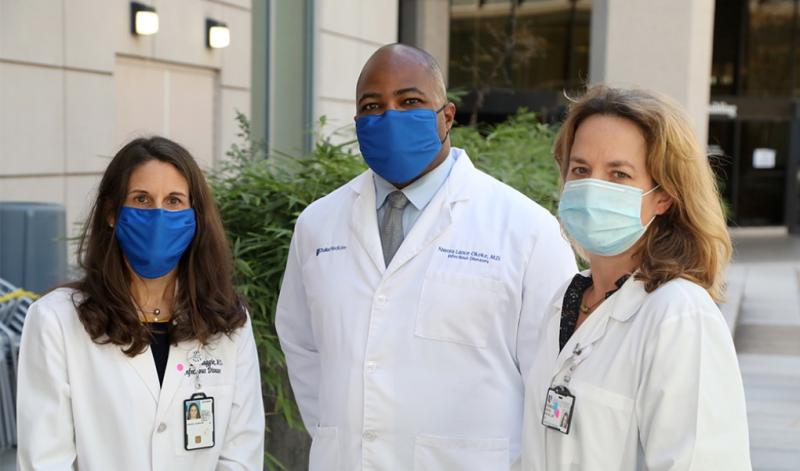
New studies are underway at Duke to test treatments that could help people with COVID-19 recover faster and avoid being hospitalized.
“The goal of interventional outpatient studies is to see if we can prevent people from developing more severe COVID disease requiring hospitalization,” says Susanna Naggie, MD, associate professor of medicine (Infectious Diseases) and vice dean for clinical research in the Duke University School of Medicine.
Outpatient treatments could have additional benefits including shortening the course of the illness and reducing the likelihood of people spreading the virus to others.
Participants in these studies will be people who have tested positive for COVID-19 recently and have symptoms, but aren’t sick enough to require hospitalization.
“This is the next stage [of COVID-19 research]—catching patients early before they are too sick, and keeping them out of the hospital,” says Mehri Sadri McKellar, MD, associate professor of medicine (Infectious Diseases).
One outpatient study, called ACTIV-2, is a large trial at multiple sites across the country examining whether an intravenous infusion of monoclonal antibodies can help people mount a faster and more effective immune response to the virus. Monoclonal antibodies are manufactured copies of antibodies discovered in the blood of COVID-infected people and shown to be effective in the lab against the new coronavirus, SARS-CoV-2. The trial is sponsored by Operation Warp Speed and administered by the NIH-funded AIDS Clinical Trials Group (ACTG).
Participants in ACTIV-2 will receive a single intravenous infusion of either a placebo or a monoclonal antibody that has already shown promising results in earlier studies elsewhere. “It looks encouraging in terms of decreasing hospitalization, decreasing severity, and shortening the length of illness, but we need more data to know for sure,” says Nwora Lance Okeke, MD, assistant professor of medicine (Infectious Diseases), who is principal investigator (PI) of the study at Duke.
This story first appeard in SOM Magnify. Continue reading.